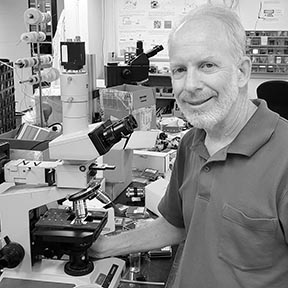What can Maxwell’s demon do?
John Bechhoefer
Simon Fraser University
British Columbia, Canada
Wed, April 20 , 2022 - 4:00 PM
JOIN ZOOM
Information engines exploit “favorable fluctuations” of a heat bath to generate work, at the cost of dissipation in a measuring device. Experimental tests of these engines require accurate measurements and fast feedback control. We designed a simple information engine using optical tweezers and feedback to raise a micron-sized trapped bead — a heavy mass — against gravity, without doing any external work. We find that the rate of work extraction (“power”) is maximized for larger beads and the directed velocity (“speed”) for smaller beads. The observed maximum power (up to 1000 kT/s) and speed (up to 190 μm/s) compare to bacteria, which have a similar size. We also design a feedback algorithm for time-dependent control of the engine output. Finally, we show that naively implemented information engines fail to function when measurements are too noisy but that more sophisticated measurement “filters” can provide good performance even when measurement noise is comparable to the size of displacements produced by thermal motion.
If you have any questions about the Colloquium Series, would like to request disability accommodations or would like to make a donation please contact the Physics Department, cua-physics@cua.edu or call (202) 319-5315.
